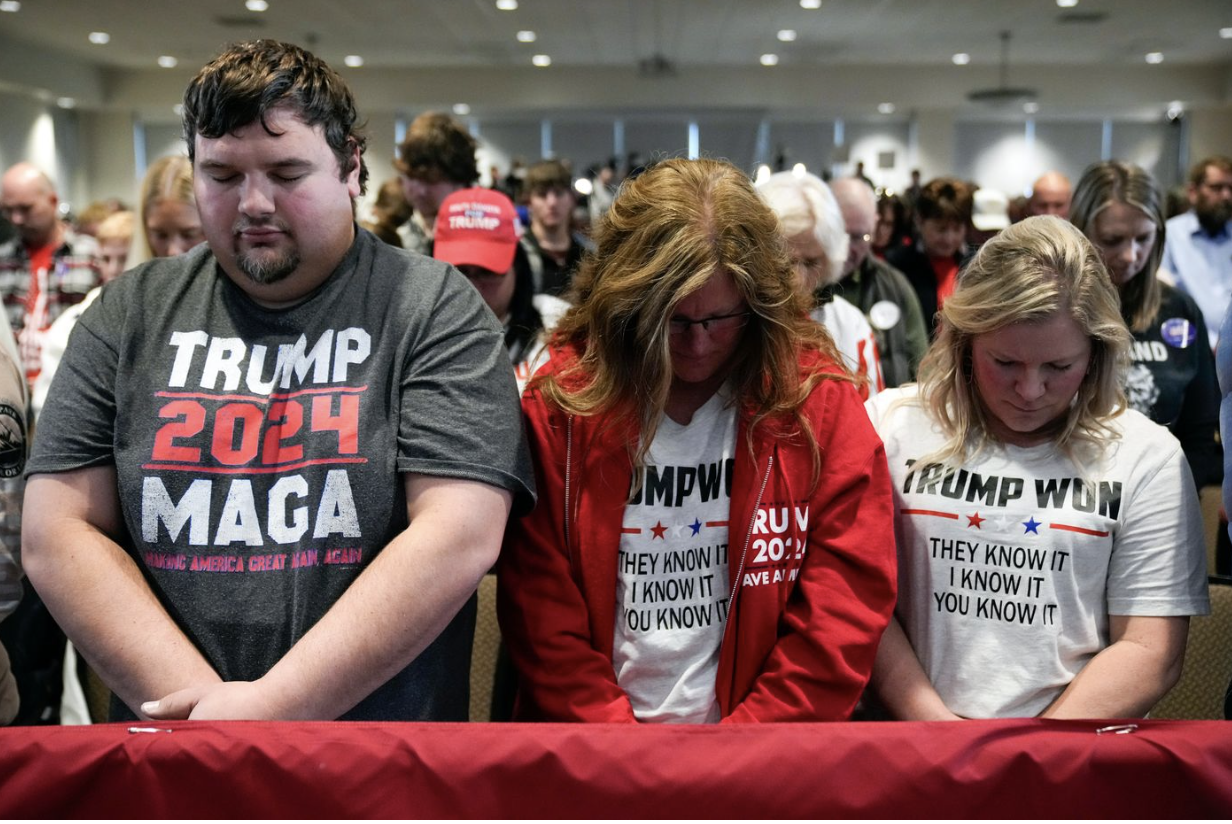By: Thomas S. Kidd – wsj.com – January 11, 2024
The adulteration of a theological term into a secular political and demographic label.
But who exactly are these evangelicals? It’s difficult to know. Some self-identified evangelical voters don’t even attend church. Many in the media seem to define “evangelicals” as white Republicans who consider themselves religious. Such a definition, in both a spiritual and a historical sense, is ludicrous.
“Evangelical” is an ancient biblical term, derived from the Greek euangelion, translated as “gospel” or “good news.” By the 17th century, the word typically meant Protestant, as opposed to Catholic. But the evangelical movement emerged in recognizable form during the 1730s and ’40s, when the First Great Awakening convulsed Europe and the American colonies. Untold numbers of people in those revivals professed to have been “born again,” or converted to new faith in Jesus.
That phrase, used by Jesus in the Gospel of John, refers to the signature belief and experience of evangelicals. To be born again is to acknowledge oneself as a sinner and put one’s faith in the Lord for salvation. This is the “good news”: Christ died to rescue sinners.
Many 18th-century Anglo-Americans figured that since they lived in a culturally Christian nation, they were Christians by default. Evangelicals denied that such minimal religiosity was enough to be saved. You must, instead, be born again. For a real believer, the new birth of salvation was always followed by service to Christ and the church. Acting on your faith was evidence that you had been truly saved.
How, then, did “evangelical” become more of a political and demographic label than a religious one? How did adherence to the Republican Party become a more essential mark of being an evangelical than churchgoing? A long story came to a head in the 1976 presidential campaign. That year saw the election of Jimmy Carter, a Democrat and one of the most conspicuously evangelical presidents in American history. Mr. Carter was eager to talk about his conversion experience, sending secular reporters scrambling to find out what “born again” meant.
Evangelicals like Billy Graham had increasingly engaged with partisan politics since the 1950s, but it was 1976 that revealed the evangelical vote as a major electoral factor. Newsweek magazine proclaimed 1976 the “year of the evangelical.” Most fatefully, the Gallup organization began to ask voters if they were evangelical and, if so, how they voted.
If you search for “evangelicals” in the news, the leading stories are almost always political. Over time, the coverage of conservative Christian voters and the work of groups such as Jerry Falwell’s Moral Majority gave average Americans—especially nonchurchgoers—the impression that “evangelical” was basically a political term. When white evangelicals firmly aligned with Ronald Reagan’s GOP in 1980, drawn by his staunch anticommunism and pro-life commitments, the evangelical-Republican fusion strengthened.
Polling about evangelicals has politicized the term more than anything else since 1976. That is owing in large part to how polls are conducted. They typically depend on self-identification alone to determine if someone is an evangelical. Opinion polling also suffers from extremely low response rates in the cellphone era. We rarely know what someone means when he says he’s an evangelical. Does he attend church? What does he think about the Bible and salvation? The pollsters rarely ask.
Further, for technical reasons related to sample sizes, most pollsters ask only white people if they are evangelicals. The result is that the news media’s label mostly refers to white Americans who respond to polls and identify as evangelicals. In a time when conservative churches are booming in Latin America, Africa, East Asia and elsewhere, this white Republican cohort is a thin slice of the world’s evangelical community. Globally, most born-again churchgoers aren’t white and they certainly aren’t Republican, because they aren’t American.
Still, journalists regularly report on nonchurchgoing white voters who say they are evangelicals. These folks are among the most devoted Trump supporters, in Iowa and across the country. Those who apply the term in a narrowly political and ethnic way might ask themselves if they, or the “evangelical” voters they query and write about, know what the word means. They might bear in mind, too, that the vast majority of the world’s evangelical Christians have never voted for Mr. Trump, or for a Republican, or in any U.S. election.
To see this article in its entirety and to subscribe to others like it, please choose to read more.
 Listen Online
Listen Online Watch Online
Watch Online Find a Station in Your Area
Find a Station in Your Area









 Listen Now
Listen Now Watch Online
Watch Online
